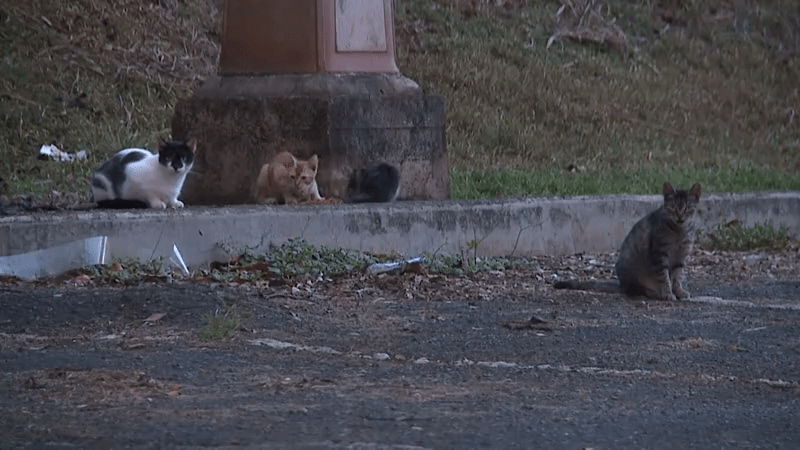HAWAII, Hawaii (KHON2) — Animal advocacy groups estimate there may be up to 50,000 stray cats roaming the Big Island. Some say it’s becoming a public safety issue and causing problems with endangered species.
So the Hawaii County Council passed a controversial bill to help stop the growing problem.
Stray cats are a becoming problem across the state. How to deal with the issue is up for debate.
“There is an overpopulation issue,” said Sylvia Dolena of Aloha Animal Advocates. “However, the way you handle that is not by starving the cats and have them all spread out and go after birds.”
The heaviness of the topic is shared by other advocates.
“It is a very emotional and tough subject,” said Jordan Lerma, nene.org executive director. “No one, you know, wanted to introduce a bill for feral animals, and it’s not very popular in any of the counties in the state.”
To try and deal with the issue on the Big Island, councilmembers just passed Bill 51 which makes it illegal to feed feral animals — including cats — on county property. Penalty would be a $50 fine for the first violation, and up to a $500 fine any time after.
“It criminalizes the seniors, mostly seniors who are out there working really hard,” Dolena said. “They’re trapping, they’re spaying and neutering, they’re returning, they cannot take all of those cats home, so they feed them on rotation, and they use their own money.”
Those in favor of the bill say it’s to help protect the public from contracting diseases associated with feral cats, and also to protect endangered species like nene. State officials say one nene died last year because of toxoplasmosis, an infection spread in cat feces.
“If free-roaming cats don’t have a human food source, the cats aren’t going to vanish, they are going to survive,” said Steph Kendrick, Hawaiian Humane Society director of community engagement. “Cats are survivors.”
Animal advocacy groups say there is a difference between feral cats and animals who live in the wild, versus abandoned cats who are homeless.
And they say other strategies, like TNRM, which stands for trap, neuter, return and manage, would better help the population issue.
“The version that they passed allows no exceptions for TNRM, even if the county wanted to approve such a project, which we think is terribly short-sighted and counterproductive if you’re concerned about managing free-roaming cats,” Kendrick said.
For some, TNRM is not the magic spell to fix the environmental issue.
“Releasing cats back to protected habitats, to sensitive habitats, these cats are sterilized, but they can still cause harm,” Lerma said. “They still poop. They can still spread disease. They can still hunt.”
Both sides do agree on one thing — there’s no silver bullet.
“I don’t think one bill is going to solve the problem,” Lerma said. “I think this is going to take a joint effort between the county and the state and the community to be able to address the animal, the free ranging animal problem.”
The bill now goes to Mayor Kimo Alameda for his approval.
